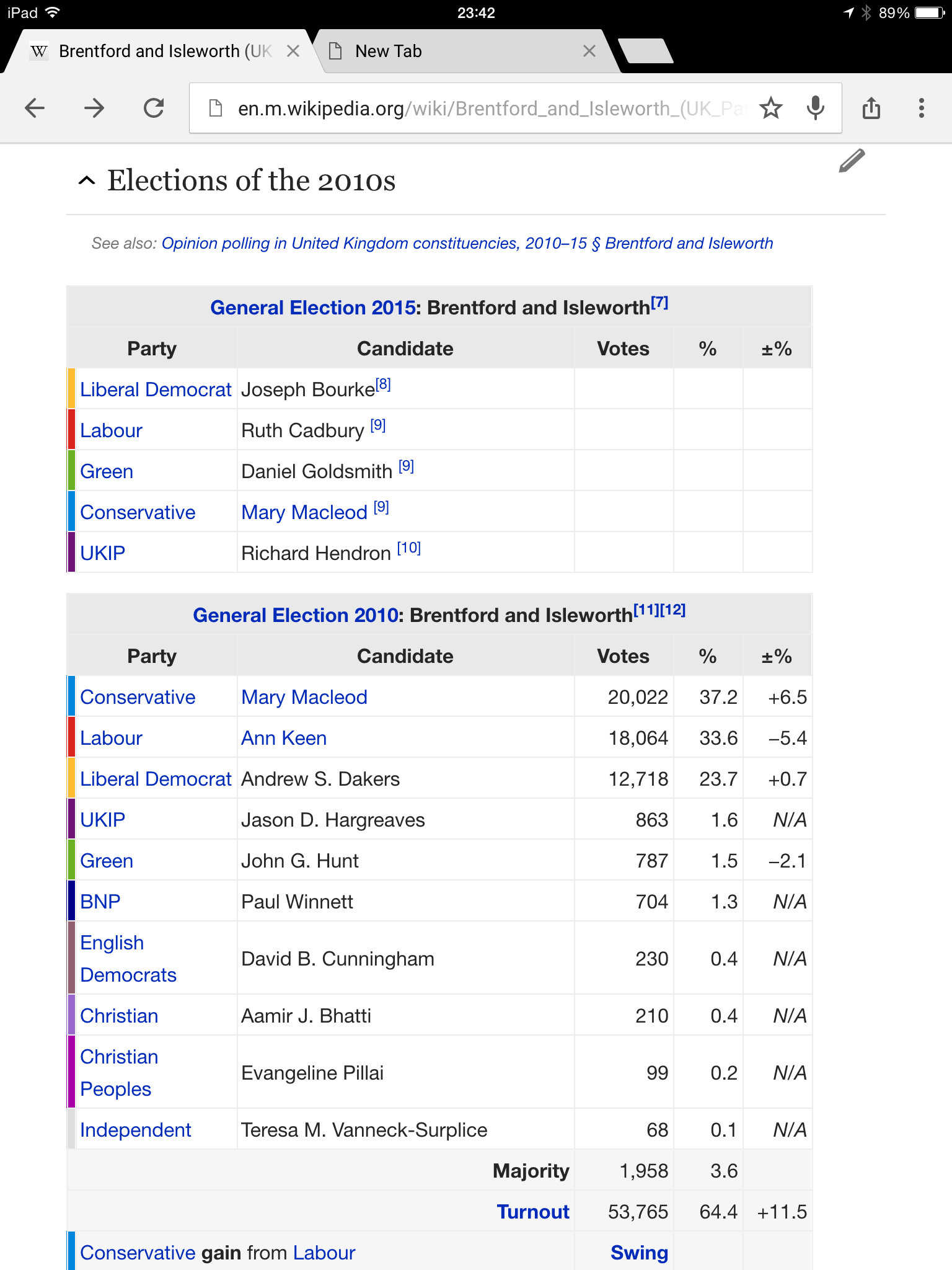The City of London has been invaded by 50 Shaun-the-Sheep statues in an effort to raise money for sick children.
This one, named Baa-Roque (get it?), has an infestation of putti.
The City of London has been invaded by 50 Shaun-the-Sheep statues in an effort to raise money for sick children.
This one, named Baa-Roque (get it?), has an infestation of putti.
According to the BBC Proms Guide 2015 , Anton Bruckner was a dead ringer for Jean Sibelius with a bigger head.


There’s a general election tomorrow in the UK, and for some reason I haven’t received a poll card. It’s no big deal. It’s not required to vote. However it did make me look up the location of my nearest polling station.
At the same time, I checked the candidates standing for election in my constituency (Brentford and Isleworth). One of the interesting changes from 2010 is the total number of candidates running for office — it’s exactly half. There were 10 candidates five years ago, and only five this time (see the screen shot from Wikipedia).
I’m not certain what this decrease implies about the state of political ambition in the country, but perhaps it’s indicative of the widespread political apathy that gets reported so often in the press.

By far the most interesting difference between these elections, however, is the absence of anyone standing on behalf of the British National Party (aka BNP). The BNP is a far-right political party that according to Wikipedia advocates “voluntary resettlement whereby immigrants and their descendants are afforded the opportunity to return to their lands of ethnic origin”. As well as anti-immigration policies, the party advocates the reintroduction of capital punishment and opposes same-sex marriage, multiculturalism and what it perceives as the Islamification of the UK. The BNP’s ideology has been described as fascist or neo-fascist by political scientists, and in the years leading up to 2010 it gained a reputation for racist, skinhead violence.
Five years ago, the BNP was perceived as a viable threat to the political status quo and was often compared to France’s Front national, despite never having anywhere near the same degree of popular support. In 2010 it stood 338 candidates for election across the UK. This year there are eight. That’s a decline of more than 97% and, although immigration is still an important election issue for many, the demise of the extremist BNP can only be considered a significant change for the better in an increasingly fragmented “United” Kingdom.
By continuing to use the site, you agree to the use of cookies. more information
The cookie settings on this website are set to "allow cookies" to give you the best browsing experience possible. If you continue to use this website without changing your cookie settings or you click "Accept" below then you are consenting to this.